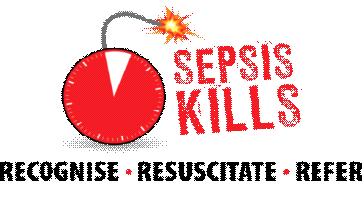Sepsis Symptoms, Causes, Diagnosis and Treatment

What Is Sepsis?
Sepsis is a very potential and life-threatening infection complication. Sepsis is usually seen when chemicals are present in the bloodstream to fight against the infection trigger inflammatory responses throughout the body. The inflammation can further trigger a series of changes that can harm different organ systems, letting them to fail. If sepsis develops further to septic shock, dramatically BP drops further leading to death.
Sepsis can be developed by anyone, but it is very common and dangerous in adults or people having weak immune systems. Early sepsis treatment is required with antibiotics usually. Also, large quantity of IV fluids, improves survival chances.
What Are The Symptoms Of Sepsis?
Generally sepsis is seen by the doctors as a 3 stage syndrome, beginning with the sepsis and succeeding from intense sepsis to shock.
The aim is to cure sepsis before serious complications occur.
If a person is suffering from sepsis, he may show any two below mentioned symptoms:
- Temperature of Body above 101 F or less than 96.8 F.
- High Heart rate, more than 90 beats/minute.
- High respiratory rate, more than twenty breaths/minute
- Abdominal cramps or pain
- Confirmed or Probable infection
- Reduce urine output Significantly
- Decreased platelet count
- Sudden mental status changes
- Difficulty while breathing
- Abnormal pumping function of heart
What Are The Causes Of Sepsis?
If there is any infection, whether fungal, bacterial or viral, can progress to sepsis, such as:
- Pneumonia
- Bloodstream infection
- Kidney infection
- Abdominal infection
The sepsis incidences are increasing in the US. It may be due to any of the following cause:
- Aging population. The Americans usually live longer and this is increasing the risk among aged people usually above 65.
- Bacteria that are resistant to Drug: Several types of bacteria are present which can resist the antibiotics effects killed once.
- Weak immune system: Americans are now living with weak immunity, due to cancer treatments, HIV, or relocate drugs.
How Sepsis Is Diagnosed?
Diagnosis of sepsis may become difficult as its symptoms can be occurred by other diseases. Often, Doctors order tests series to identify the basic cause of infection.
Blood tests
Blood test can be done to find out the:
- Infection Evidence.
- Clotting issues.
- Abnormal kidney or liver function.
- Impaired availability of oxygen.
- Imbalance between the Electrolytes.
Laboratory tests
Depending on the signs and symptoms, the doctor may want to done one of the following tests:
- Urine.
- Wound secretions.
- Respiratory secretions.
Imaging tests:
If the infection site isn’t clear, the doctor may order any of the mentioned imaging tests:
- X-ray.
- Computerized tomography.
- Magnetic resonance imaging.
- Ultrasound.
How Is Sepsis Treatment?
Aggressive, early treatment increases your chances of having sepsis. People suffering from severe sepsis need close observing and treatment in an intensive hospital care unit. If a person is suffering from septic shock or intense sepsis, lifesaving actions may be desired to calm heart functioning and breathing.
Medications
There are lots of medications present to treat sepsis. They consist of:
- Vasopressors.
- Antibiotics.
By : Natural Health News




